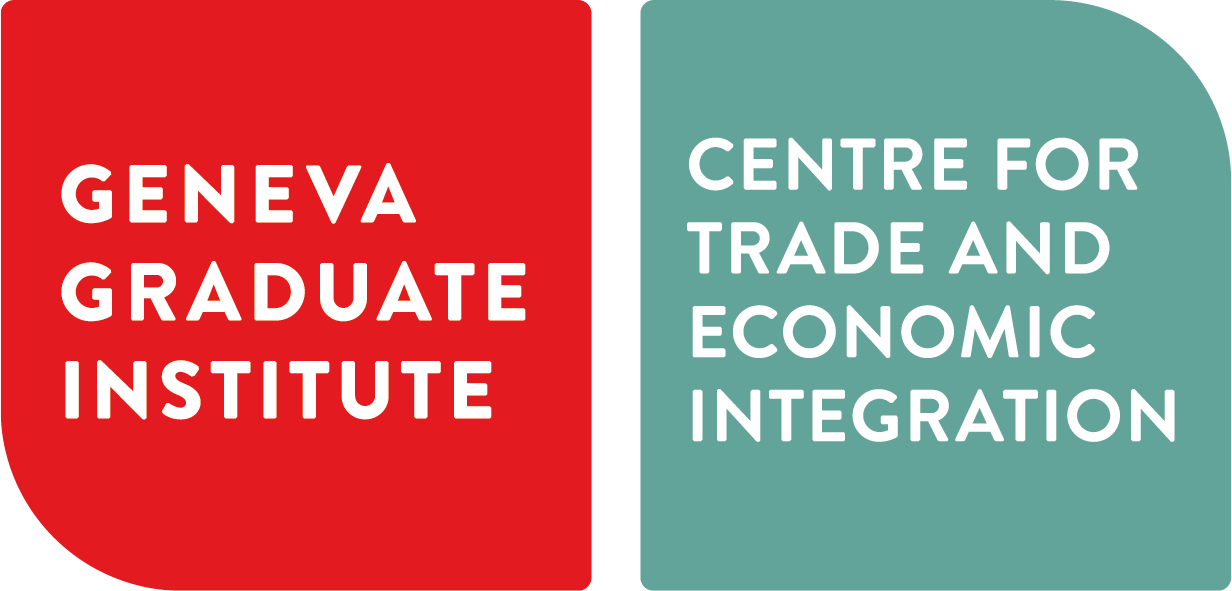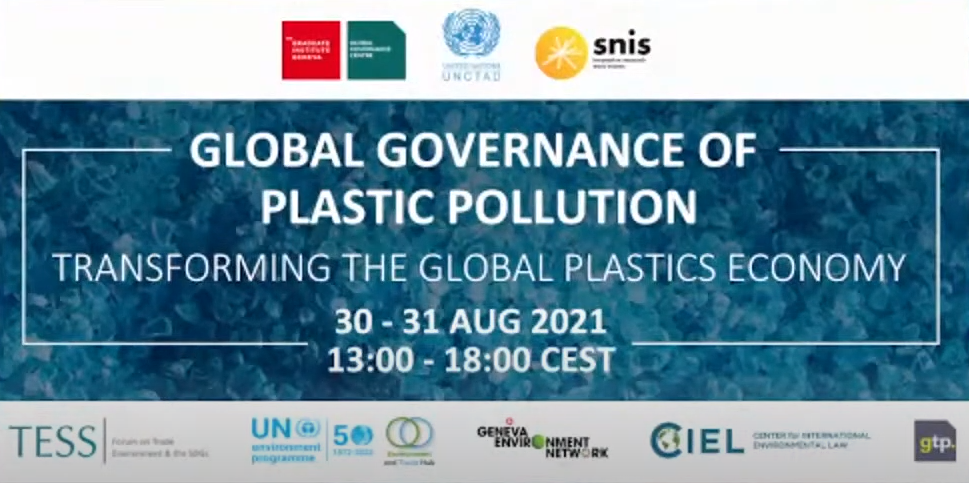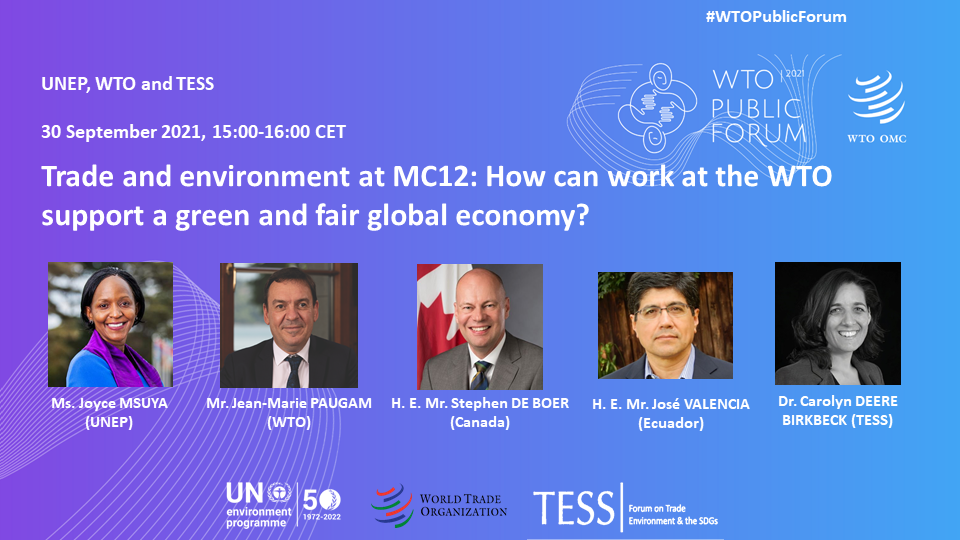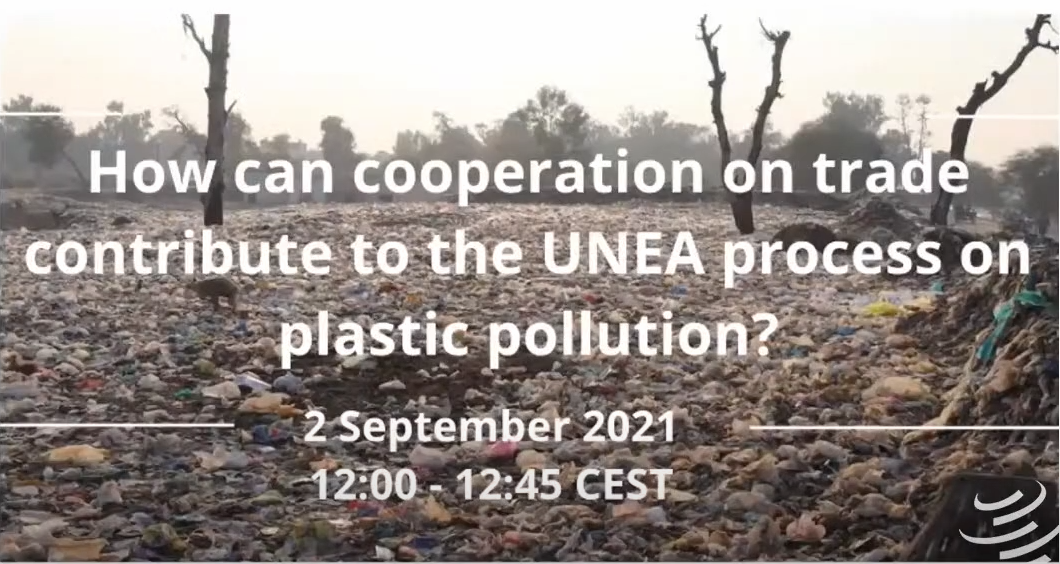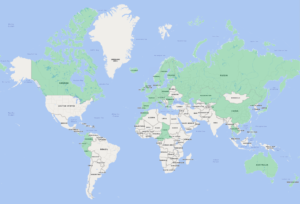Recalling that the Marrakesh Agreement Establishing the WTO recognizes the role of trade in achieving the objective of sustainable development and the need to protect and preserve the environment.
Noting the role of trade in contributing to the achievement of Sustainable Development Goals and environmental sustainability, including the fight against climate change, pollution and biodiversity loss.
Recognizing that the rising environmental, biodiversity, health and economic costs of plastic pollution are a concern that increasingly unites all Members, and that the COVID-19 pandemic has only amplified these concerns.
Recalling the need for further commitment and actions across the life cycle of plastics to address marine litter and microplastics, including through a circular economy approach.
Acknowledging the impact that plastic pollution (including microplastics pollution) has on economies and the environment, including on oceans, coastal and terrestrial environments, particularly on Small Island Developing States (SIDS) which are especially vulnerable to environmental impacts, and recognizing the challenges that developing members and least developed Members face in addressing trade-related aspects of plastics pollution, including in moving towards environmentally sustainable and effective substitutes and alternatives and the role for multilateral trade cooperation in promoting good practices.
Recalling the inaugural statement ( WT/CTE/W/250/Rev.1 )1 and reaffirming our commitment to addressing the trade-related aspects of the plastic pollution challenge, including by supporting synergies between the WTO and other international organizations, in particular the Secretariats of Multilateral Environmental Agreements and their related processes.
Acknowledging the many international, regional and domestic efforts, decisions and processes aimed at addressing the plastic pollution challenge in other fora, including, inter alia, the Basel Convention on the Control of Transboundary Movements of Hazardous Wastes and their Disposal (Basel Convention) and its Plastic Waste Amendments, and in the context of the United Nations Environment Assembly (UNEA), and highlighting the opportunities for enhanced cooperation among the different processes working towards a common vision taking into account the importance to ensure complementarity and avoid duplication of efforts. Noting that recent research by the United Nations Conference on Trade and Development (UNCTAD) indicates trade in plastics accounts for as much as 5 % of global trade – or more than 1 trillion US dollars in 2019 – almost 40% higher than previously estimated, with more trade in plastics still unaccounted.
Noting the importance of work in the WTO Committee on Trade and Environment as well as the synergies with other processes and initiatives at the WTO, and that work on this topic is a key part of broader WTO discussions to advance shared trade and environmental sustainability objectives.
Recognizing the contribution of our discussions so far (as summarized in the IDP Factual Report – INF/TE/IDP/W/3 ), which covered all six topics initially agreed ( WT/CTE/W/250/Rev.1 )1, to provide a clearer picture of international, regional, and domestic efforts to reduce plastic pollution and transition to a more circular and environmentally sustainable global plastics economy, as well as synergies, and the opportunities and value-added nature of addressing trade dimensions of the topic.
Noting the value and importance of proactive engagement by a broad diversity of Members and relevant stakeholders, including, inter alia, international organizations and institutions, trade and environmental authorities and domestic bodies, the private sector, academia, and civil society.
1 The six topics initially agreed were: improving transparency and monitoring trade trends; promoting best practices; strengthening policy coherence; identifying the scope for collective approaches; assessing capacity and technical assistance needs; and cooperating with other international processes and efforts.

